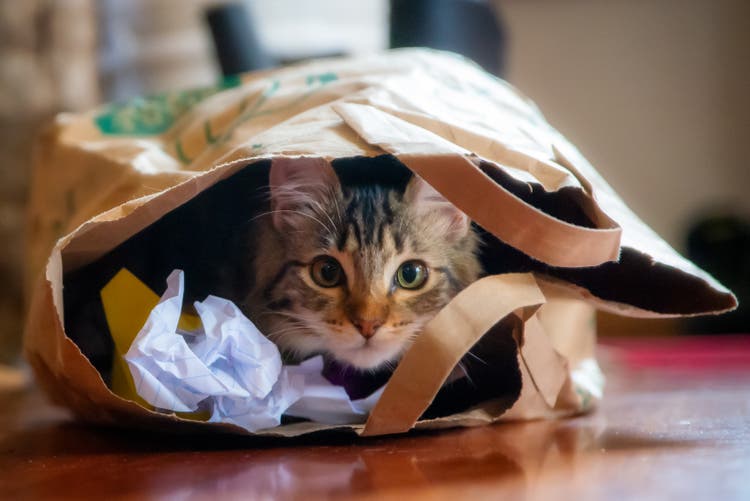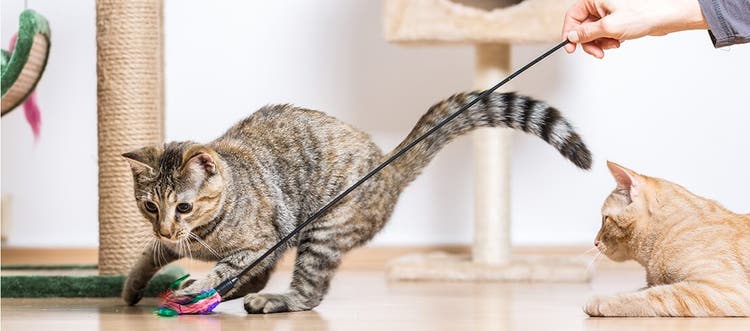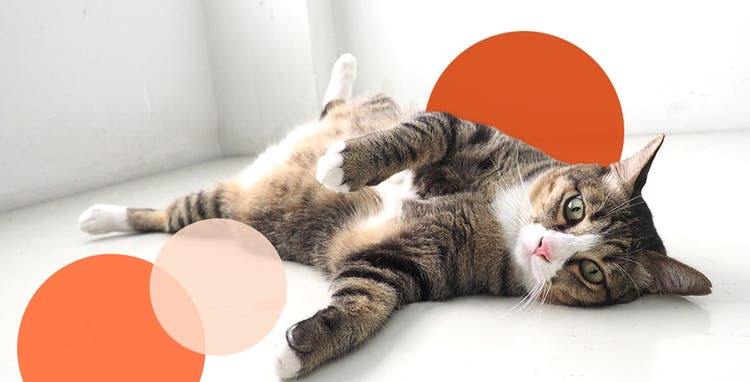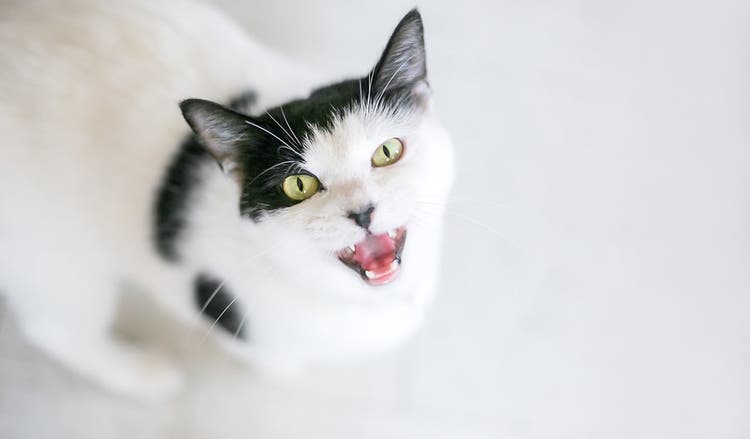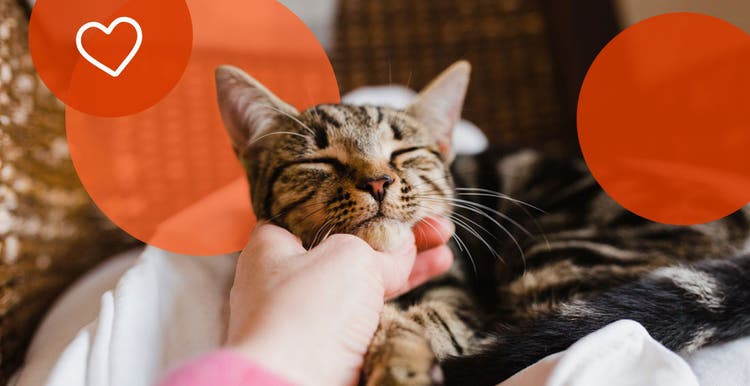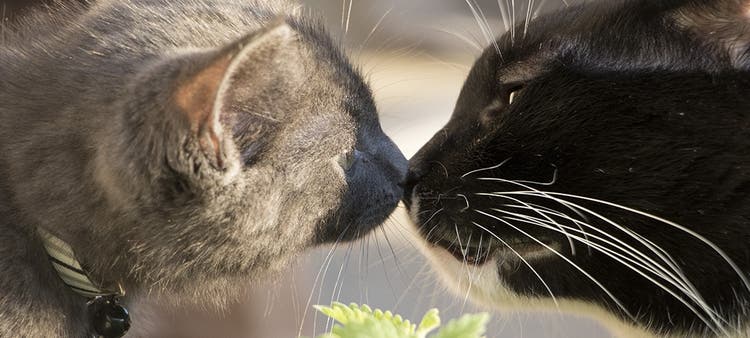Is your cat feeling sad? Learn the signs.
Cats have a wide range of personalities and moods, from independent and feisty to anxious and reserved. And, just like people, cats have good days and bad days — and can even become sad or depressed.
How to Tell If Your Cat Is Depressed
There are several common behaviors that could mean your cat is feeling depressed. Here’s what you should look out for and how you can help.
Note: These behaviors don’t automatically mean your cat is depressed. However, keep in mind that something may be triggering the behavior, and you should investigate the root cause.
Sign 1: Loss of Appetite
If your cat is feeling unhappy, eating less food is common. However, if your cat stops eating for several days, or if they stop drinking water for longer than 12 to 24 hours, see a vet as soon as possible; either behavior could indicate a serious health issue.
What to Do
Every cat is a creature of habit. A lot of the time, a change to your cat’s routine may be causing their loss of appetite. Backtrack through your cat’s routines over the last 24 hours and try to identify what has changed significantly. It could be obvious, like a dirty food bowl that’s normally clean, or more subtle, like a chair that isn’t in its usual spot or a favorite toy trapped under a piece of furniture.
Sign 2: Excessive Meowing
If your cat is depressed, you’ll likely hear about it. Even if your cat is normally vocal, an unhappy meow will sound different — longer and deeper than a typical meow — and should be addressed sooner rather than later.
What to Do
Give your cat extra attention in the form of play and/or petting, depending on your cat’s personality. Even if you think you’re already providing enough attention, your cat’s preferences can change with age. If your cat doesn’t welcome this extra attention, call your vet, because excessive or abnormal vocalization may be a sign of physical discomfort.
Sign 3: A Sudden Appetite for Destruction
If your cat starts to claw, chew and destroy furniture, curtains and other items in the house they’ve never touched before, it could be the result of depression.
What to Do
Changes in routine can cause cats to feel unhappy and lash out. If the change isn’t something that can be undone — like the arrival of a new family member or even just a new piece of furniture — try spraying your cat’s favorite scratching post or toy with a natural pheromone to remind them just how fun it is to destroy something that actually deserves it.
Sign 4: Litter Box Regression
Unhappy cats may spray or poop outside their litter box. If your cat seems healthy otherwise, then litter box avoidance is a clear sign of anxiety. Again, a change in routine may be the culprit: If a family member or another pet spends some time away from home, this can cause accidents and spraying.
What to Do
Extra attention or even a few extra treats (within reason) can help. A new, fragrant toy is also a great way to distract your cat and take their mind off the change. Also, consider giving the litterbox a thorough cleaning, or changing the litter type. If the spraying or litter box avoidance continues for more than a few days, plan a trip to the vet to make sure there isn’t an underlying health issue.
Sign 5: Over-climbing
Cats experiencing anxiety or depression often seek out new spots to climb that help them feel more in control. This can lead to taking riskier trips into entertainment center wires or onto bookshelves and could lead to pricey, and frustrating, damage.
What to Do
Channel your cat’s energy into areas that can handle their adventurous side. Create safe perches that only your cat can reach so they can feel like the ruler of the house … or at least the room. These spots don’t always have to be visible, either. Your cat may appreciate a partially hidden, high-up spot that can serve as their hidden refuge.
You probably know your cat’s personality and quirks better than anyone — which means you can tell when they feel down or depressed. If these tips for curbing your cat’s depression don’t seem to help in the long term, talk to your vet about next steps and courses of treatment for their depression.

